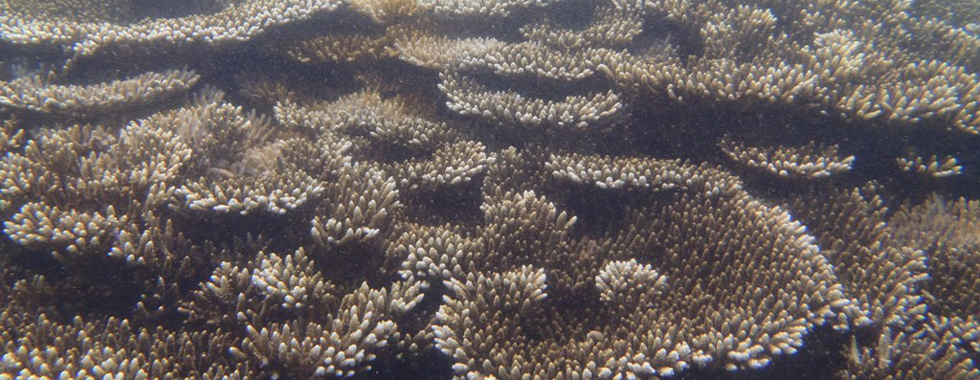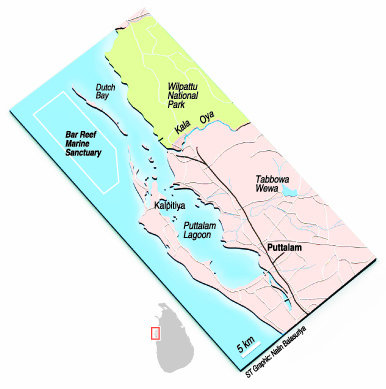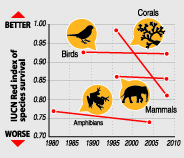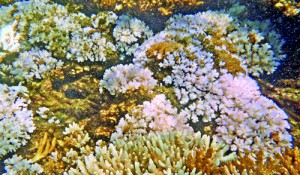News
Deluges strike at valuable coral reef
The intense rainfall that fell across the country a few weeks back left an unexpected victim: coral reefs.
Marine and Coastal Resources Conservation Foundation member Upali Mallikarachchi has revealed that some parts of the Bar Reef marine sanctuary at Kalpitiya have begun bleaching.
Bleaching is one of the worst destructive natural phenomena faced by corals worldwide. It occurs when coral polyps, the organisms that build corals, shed the algae zooxanthellae that give them their colour.
These tiny algae, which live in harmony with the corals, also provide food for the host through the process of photosynthesis. Without the algae the coral becomes pale white and the coral polyps can be exposed to ultraviolet radiation.
 Without food, oxygen or cover from dangerous rays, the coral polyps in the reef will die a few weeks after bleaching starts.
Without food, oxygen or cover from dangerous rays, the coral polyps in the reef will die a few weeks after bleaching starts.
Factors that cause bleaching through the departure of the algae include a change in salinity levels, a rise in sea surface temperature and changes in light intensity.
Mr. Mallikarachchi, a former research officer at NARA (National Aquatic Resources Research and Development Agency), says the bleaching at Bar Reef could have been triggered by the large volume of fresh water flowing through Kala Oya that gushed into the ocean via Puttalam Lagoon.
He quotes divers saying the water at Bar Reef recorded very low salinity levels, giving almost drinkable water, on days where it rained heavily last month.
Sri Lanka’s foremost expert on corals, Arjan Rajasuriya, agreed that the large volume of freshwater could trigger the bleaching of Bar Reef. He pointed out that the rainfall levels were abnormally high. In addition, he said, most of the rivers are dammed, so when overfull dams are opened to release excess water – as happened a few weeks ago – there is always a sudden influx of  freshwater in the ocean.
freshwater in the ocean.
When questioned, why only Bar Reef was affected while the heavy rainfall affected most parts of the country, Mr. Mallikarachchi pointed out that factors such as oceanic currents could change the movements of freshwater columns in the ocean.
Bar Reef harbours very high biodiversity and is one of the few pristine coral reef systems in Sri Lanka. The areas of coral bleaching in Bar Reef are the prime spots where coral growth is high.

Bleached corals in Bar Reef. Pix by Upali Mallikarachchi
Mr. Mallikarachchi is hopeful that some of these corals will survive and rest will quickly regrow.
He points out the importance of constant monitoring as Bar Reef has a high level of tourist activity which causes additional stress to the corals and can delay their recovery.
There are fears that similar phenomena would occur with increasing frequency as the intensity of rainfall has increased with the climate change. Experts also fear that the increase of carbon dioxide levels in the atmosphere could make the oceans more acidic.
International Union for Conservation of Nature (IUCN) data shows coral species are heading towards extinction more rapidly than other organisms.
Corals are the breeding habitats of many fish species that have economic value, so losing coral reefs will affect the whole oceanic system.

